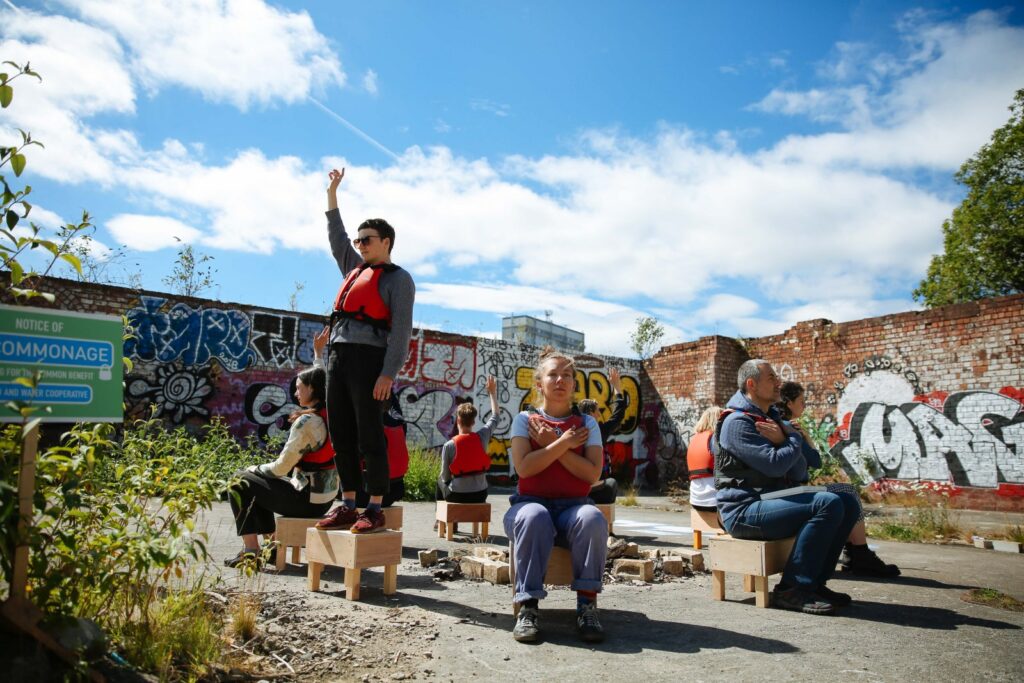
Unit: The Co-Op Protocol
Glasgow’s canal area is bringing its future into collective hands. But how to enact something that is yet to be imagined?
Overview:
Over the next 10 years the Glasgow Canal Co-op is expected to bring a much needed impact to Glasgow’s canal area. At its start, today, it is a coalition of 12 small and larger actors. What are the most challenging changes to take on? And how will the decisions on these be made?
Context:
For a week, we playfully ‘hijack’ the canal area and explore how to form and run the prototype organisation that is to govern the area in the time yet to come. Well before the actual Glasgow Canal Co-op comes into action this year, we will already start practicing its daily assemblies, its decision making processes, investment strategies, and its principles of co-design. Not tightly bound by the limitations encountered, but rather open towards possibilities still to be ‘carved’ into the area. A collective act of future fiction that might well inscribe itself into the future to emerge.
Method:
Our days will be organised around research and thinking-up possibilities, collectively discussing and making decisions, and performing the canal area “rituals”.
What creates the common culture around which to come together – how to be(come) a collective and have a common ambition? Roles are to be taken upon, with persons part in the actual cooperative currently getting established joining us in doing so. As a conclusion, the traces of our process will be left to this cooperative in the making.
Links / references:
UNIDESCO, San Remo
Futures for Alkantara, Lisbon
About the facilitator:
STEALTH.unlimited (Ana Džokić and Marc Neelen) have never been intrigued with the “industry” of producing urbanity. Instead, they noticed they have some talent at provoking “simmering” spatial issues to get articulated. That is often in a situation where they shake up groups or communities, to get them imagining what their future horizon could be. It has brought them to make debates, workshops, spatial interventions, exhibitions etc. in quite some places. They have undertaken some long-term, rather persistent commitments (> 10 years). They deal with the spaces and spatiality of production and (social) reproduction, so with sustaining our lives in the cities: City in the Making in Rotterdam and Who Builds the City in Belgrade.
Assisted by:
Abigale Neate–Wilson
Group members:
Rachael Clerke, Julie Murray, Andrew Corletto, Gaelen Britton, Issy Arnold, Louisa McGuigan
Photo credits:
Jassy Earl